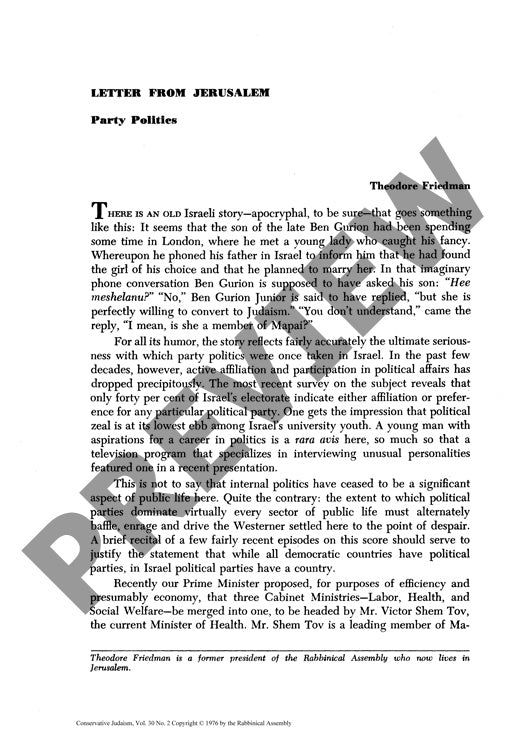Letter from Jerusalem Party Politics
Couldn't load pickup availability
Israel presents a striking political paradox: while only 40% of voters claim party affiliation, political parties exercise unprecedented control over nearly every sector of public life. Party considerations routinely override objective policy evaluation across Israeli society, from ministerial appointments to religious councils to commercial enterprises - creating a system where "political parties have a country" rather than the reverse. Through observational analysis of recent political episodes, including proposed ministerial mergers and party financing controversies, this research reveals how Israel's proportional representation electoral system, inherited from the pre-state period, perpetuates party dominance by making Knesset members accountable to party leadership rather than constituents. The investigation documents extensive party control over professional associations, labor unions, religious councils, and commercial enterprises. While meaningful democratic reform would require fundamental changes to the electoral system, such modifications face resistance from established parties across the political spectrum. However, the emergence of the self-financed Shinui party offers a potential catalyst for systemic change by providing an alternative focused on reducing party politicization of Israeli public life.

More Information
-
Physical Description
-
Publication Information
Published 1976
ISBN
-
Publication Credits
Theodore Friedman

